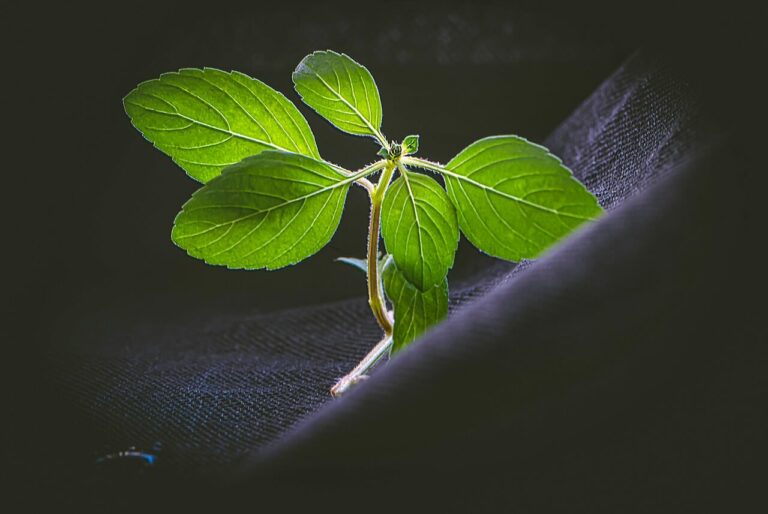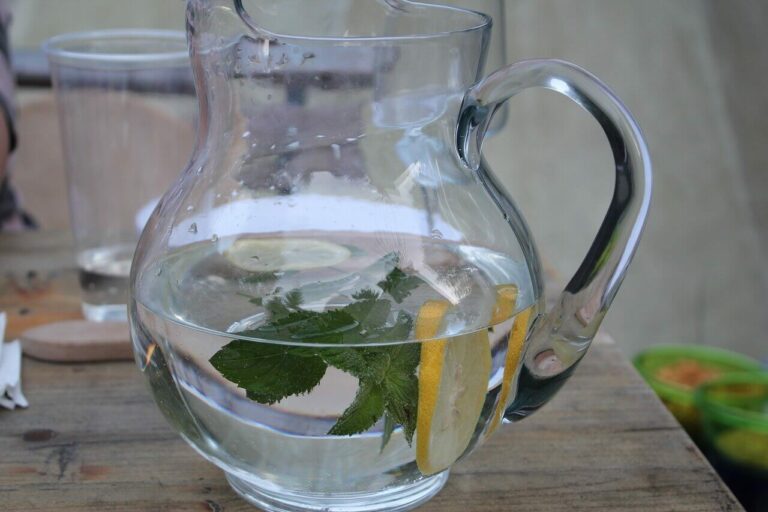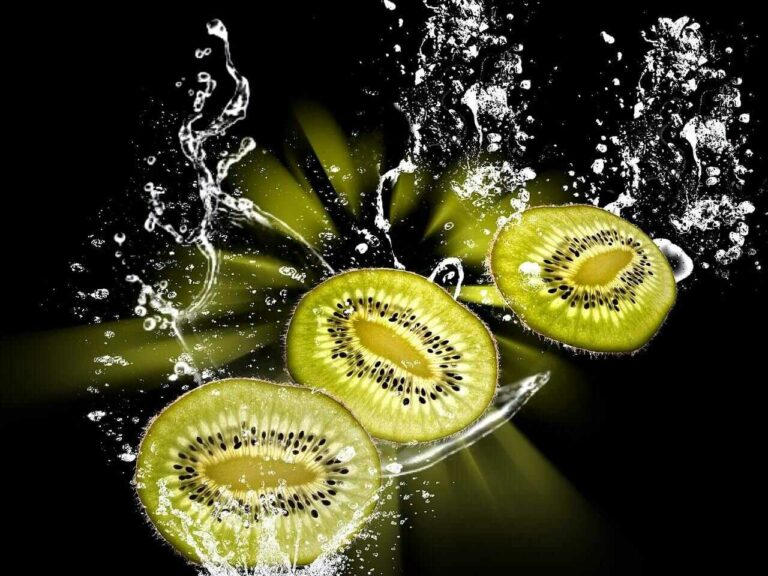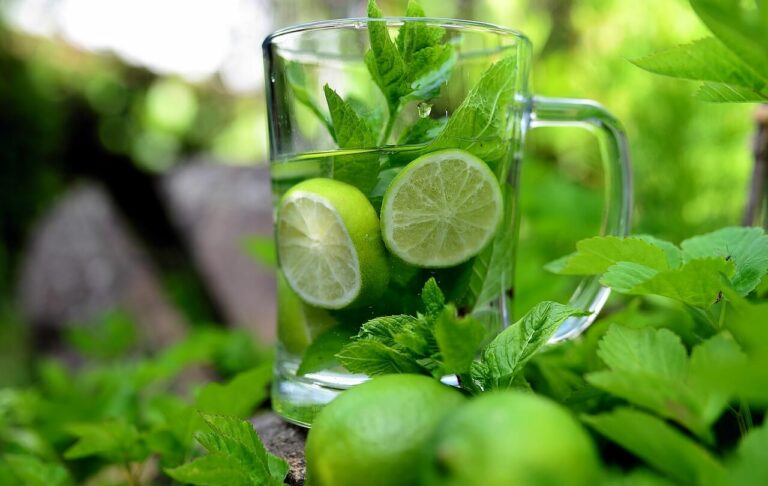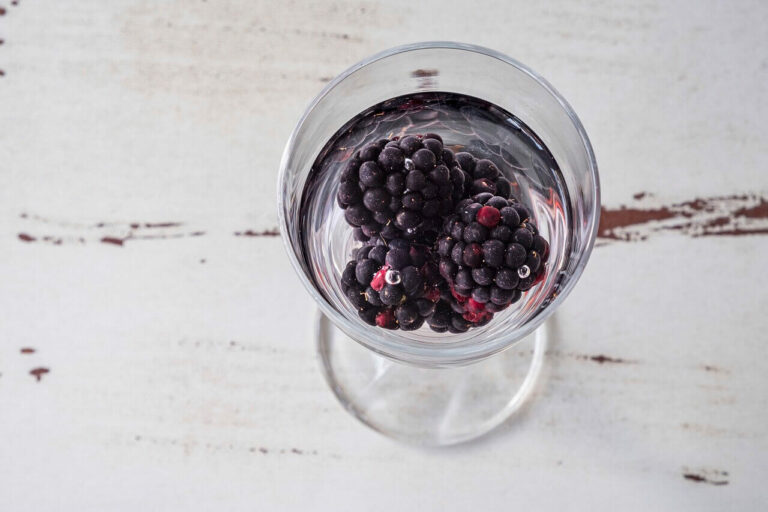Cilantro Water
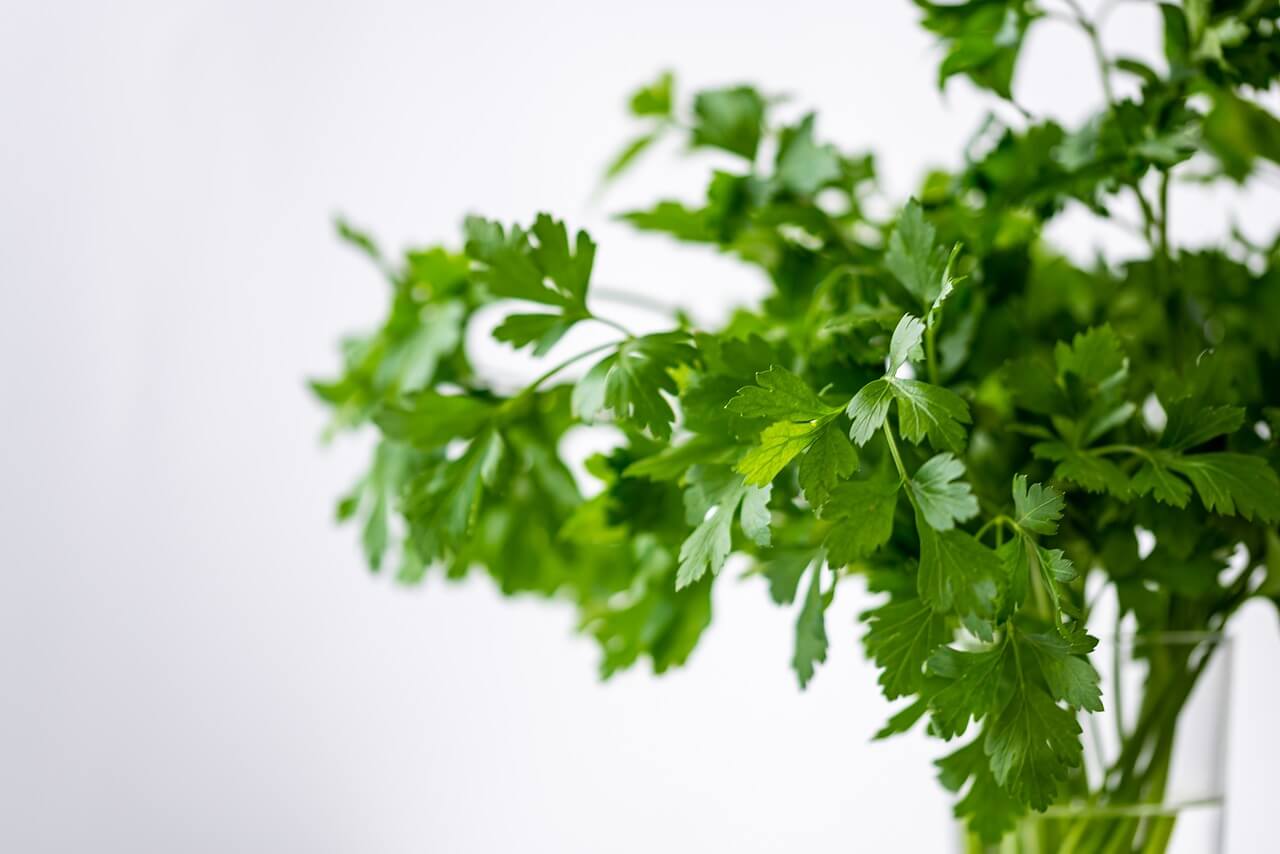
Why go for pitchers and bottles of regular water daily when you can easily make infused water drinks at home?
There’s a whole world to explore infused water’s taste and health benefits: Lemon, cucumber, mint, and cilantro. You can try different recipes or have fun adding your choice of ingredients to bring out the flavor and aroma.
So when plain old water gets boring, you can still get the much-needed hydration and health benefits from these infused drinks. Trust us; you’ll keep refilling your glass!
One of the healthiest alternatives to plain water is cilantro-infused water. But how do we make it? What are the health benefits of the drink? Let’s find out.
Contents
What is Cilantro?
Cilantro is a special ingredient that has several health benefits. However, there is a downside to it as well.
Although it’s a refreshing ingredient, perfect for the summers, it often leaves an appalling soapy aftertaste.
It is a surprise for many that the same plant produces cilantro and coriander.
Coriander sativum has green leaves and stalks. The stalks and leaves are called ‘cilantro,’ and the seeds produced by the plant are dried and used as coriander.
Cilantro is one of the most widely available and popular herbs. The herb, which looks like flat parsley leaves, is present in almost every corner of the world.
The distinct characteristic of cilantro is its unique scent. The smell instantly refreshes your mind and is relative to Indian cuisines, the Mediterranean, and Asian countries.
So cilantro is the fresh part of the plant and is generally used as it is too. Whereas coriander or the seeds are dried and used in powder form (although some recipes require using whole seeds.)
Dried Cilantro Or Coriander?
Apart from the looks, the taste uses, and even the health benefits of both ingredients vary greatly.
Here are a few more differences between the two:
- Coriander has a nutty, spicy, and citrus-type flavor. In comparison, cilantro has a refreshing and fragrant taste.
- Coriander can be used instead of caraway seeds and cumin, while parsley and basil can substitute for cilantro.
- Cilantro is used in salsas, soups, sauces, and other foods. In contrast, coriander is used in curries, stews, etc., to give them a nutty taste.
General Facts About Cilantro Leaves
The medicinal use of cilantro dates back to the Egyptians, who used the plant’s seeds to make snake-bite antidotes.
The herb is believed to be over 3000 years old and initially grown in the Mediterranean and Southern parts of Europe.
The uses of the herb date back to biblical times. It can be traced back to Ancient Rome, India, and Egypt, as per the references in the biblical texts.
You don’t have to consider adding other spices, sugar, or salt to your drink or dish when using it. The leaves are enough to give you cilantro’s aroma and taste (not to forget the health benefits).
Cilantro is used in different food items:
- Salsas
- Curries
- Drinks
- Guacamole
- Noodles
- Sauces
- As a garnish, etc.
Cilantro – Nutritional Facts
Cilantro leaves and stalks are rich in phytonutrients, vitamins A and K.
They also have many phenolic compounds and flavonoids. Some of the key nutrients present in the herb are:
- Proteins
- Fiber
- Carbohydrates
- Vitamin C and E
- Folate
- Potassium
Health Benefits of Cilantro
Cilantro is known for its detox properties, removing heavy organic toxins from the body. But amongst its less-known benefits is its ability to remove heavy metals and even help the body heal from lead and mercury poisoning.
Major health benefits of the essential crop include:
Lowers Blood Sugar and Cholesterol
Cilantro has dietary fiber, iron, vitamins, and potassium. All these compounds help cleanse the body of toxins and, in turn, help reduce cholesterol and blood sugar.
This is why the herb is quite popular among health-conscious individuals.
It also helps heal damage due to cardiac impairment.
Boosts Immunity
The number of antioxidants in the herb is mainly responsible for boosting immunity. The terpinenes, tocopherols, and vitamins protect your body from various diseases, including cancer.
As per a study, it is also effective against Parkinson’s, Alzheimer’s, colon cancer, and multiple sclerosis.
Soothes the Skin
Cilantro calms and soothes the skin, reducing inflammation, irritation, and sunburn.
It also works as a natural antihistamine and protects against sunburn, poison ivy, and hives.
Aids Digestion
Over 10 -15% of Americans suffer from IBS and digestive issues. Using cilantro drink or incorporating it into your diet can improve your metabolic rate and digestion in just a few days.
When taken regularly, the water also helps reduce weight.
Even if you don’t take it regularly, having it periodically over the month or every week can also help you get the maximum benefits of the herb.
Relieves Stress and Promotes Smooth Sleep
Although most of our population already suffers from stress, many also have insomnia.
Cilantro helps regulate the sleeping pattern and calms the nerves. It acts as a stress relieving agent and also reduces anxiety.
Other Health Benefits
Cilantro helps all the functions of the body, from digestion to the heart, from building immunity to detoxification.
Here are some other benefits of using the herb.
- Cilantro helps with urine incontinence, UTIs and improves kidney function.
- The iron, vitamins, and beta carotene give you smooth, healthy skin and maintain the mucous membranes and eyesight.
- Since it has high folate and iron levels, it’s effective against anemia.
- Cilantro seeds also help regularize the menstrual cycle. The herb’s healing powers also prevent cramping, inflammation, and pain associated with menstruation.
- It also improves memory and cognitive functions of the brain.
- You can also use cilantro seeds to store grain, vegetables, fish, or meat for a long time.
- Prevents gas, bloating, and indigestion.
Cilantro – As A Water Purifying Agent
One of the most surprising qualities of cilantro leaves is that it can also purify water.
A researcher from Ivy Tech Community College Lafayette, Douglas Schauer, leading a team of Mexican researchers, found that cilantro is one cheap way to get clean drinking water.
So in underdeveloped countries that can’t afford filter water, it can work as a great alternative and give you fresh drinking water at home without costing an arm and a leg.
The research team took various samples of plant filtering agents and found cilantro to be the most absorbing for filtering water contaminated with nickel and lead in Tule Valley, Mexico City.
Its efficacy is about as strong as activated charcoal for treating heavy metals.
Click here to learn more about how it is used to eliminate heavy metals from questionable drinking water.
Cilantro Tea
Due to the aftertaste, many people think having cilantro water is a turnoff.
So a healthy alternative to the infused water drink is cilantro tea. Again, it’s easy to make at home with zero prep time and works wonders during summer and spring.
You may use tea bags to make the tea and brew it easily.
What You Need
- Fresh or Dried cilantro
- Boiled water
- Honey or a sweetener of your choice
- Lemon juice
How to Make It
- Boil water in a pan.
- Now steep a few cilantro leaves in the boiling water for 5-10 minutes.
- Please don’t leave them in for too long, as that would make them taste bitter.
- Now sieve and pour the tea into a cup. Squeeze a little lemon or lime and add honey.
- Serve it hot.
Recipe for Making Cilantro Refreshing Drink
If you ask anyone if they’ve tried a cilantro drink, they’ll probably cite their experience of having a refreshing glass of infused water or tea at a resort or spa.
Many people still don’t think the drink can easily be made at home and still provide you with all the health benefits and nourishment.
There are different methods to make the drink, and it takes minimal processing too! Here’s a quick recipe to make the drink:
Ingredients
- 1 liter distilled water
- A handful of fresh cilantro leaves
- Half a lemon
- Chopped seasonal fruit of your choice (you may use mangoes, apples, etc.)
- Honey
Method
- Put all the ingredients in a large pitcher or jar.
- Stir them up well so the honey and cilantro blend in thoroughly.
- Let it sit for a while. Then put the pitcher in the fridge to cool overnight.
- Always strain before serving to keep the drink tasteful.
Consider having red pepper soup with your cilantro water for an extra flavor boost. The mild heat of the soup will complement the fresh, bright taste of the cilantro naturally. A vitamin-rich red pepper soup splash will provide a colorful splash of antioxidants.
Side Effects of Cilantro Fresh Herbs
Although the benefits of cilantro far outweigh the side effects, there are a few things you should know before making the drink a routine replacement for water.
Allergies
Some people (very few reported cases) have cited allergic reactions to cilantro.
Cilantro has been associated with
- Hives
- Diarrhea
- Abdominal Dried
- Face and throat inflammation
- Skin pigmentation
Bloating
Having too much of the herb can cause bloating and gas.
Some people suffer from abdominal pain, cramps, and vomiting due to overconsumption (having more than 200 gms of cilantro weekly.)
Flu
Regular herb users have also reportedly suffered from Cyclospora or flu-like symptoms.
Bleeding
Since the herb is rich in vitamin K and other compounds that prevent blood clotting, overconsumption can become a fatal threat for people with bleeding or clotting issues.
Final Word
Cilantro is a versatile herb that’s refreshing and flavorful and has several health benefits for the body.
You can get all its benefits in your recipes like salsas, salad dressings, soups, etc., and enjoy refreshing herbal tea and drinks from it.
With infused drinks already paving the way amongst the health-conscious, you, too, can say goodbye to tasteless regular drinking water and follow a healthier lifestyle with cilantro drinks instead.

Rahul is a nutritionist and personal trainer with 3+ years of experience in the field of health coaching. He specializes in nutrition science, with a keen eye for how food choices, lifestyle habits, and physical activity impact our bodies.

